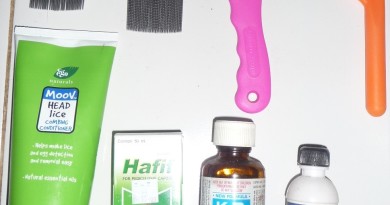Dengue Fever Information
Health experts are predicting a record season for Dengue Fever cases in Bali with the arrival of the wet season. BIMC have kindly offered two information sessions next week, led by Cathy Bolwell, to help prepare yourselves, your families, and your homes, to reduce the rick of contracting the disease.
- Parents: 8.00-9.00am, Wednesday 16th December, in Room 1.
- Teachers: 3.00-3.30pm, Wednesday 16th December, in the MPR.
Below is information from our school nurse, Ibu Surya, regarding Dengue Fever.
Dengue Fever
Dengue fever is an infectious disease carried by mosquitoes ( Aedes aegypti) This disease used to be called “break-bone” fever because it sometimes causes severe joint and muscle pain that feels like bones are breaking.
How is dengue contracted?
The virus is contracted from the bite of a striped Aedes aegypti mosquito that has previously bitten an infected person. The mosquito flourishes during rainy seasons but can breed in water-filled flower pots, plastic bags, and cans year-round. One mosquito bite can inflict the disease.
The virus is not contagious and cannot be spread directly from person to person. There must be a person-to-mosquito-to-another-person pathway.
SYMPTOMS
Symptoms of typical uncomplicated (classic) dengue usually start with fever within 5 to 6 days after you have been bitten by an infected mosquito and include
- High fever, up to 105 degrees Fahrenheit or a mild fever
- Severe headache
- Retro-orbital (behind the eye) pain
- Severe joint and muscle pain
- Nausea and vomiting
- Rash
The rash may appear over most of your body 3 to 4 days after the fever begins. You may get a second rash later in the disease. The illness can last up to 10 days, but complete recovery can take as long as a month. Older children and adults are usually sicker than young children
Most dengue infections result in relatively mild illness, but some can progress to dengue hemorrhagic fever. With dengue hemorrhagic fever, the blood vessels start to leak and cause bleeding from the nose, mouth, and gums. Bruising can be a sign of bleeding inside the body. Without prompt treatment, the blood vessels can collapse, causing shock (dengue shock syndrome). Dengue hemorrhagic fever is fatal in about 5 percent of cases, mostly among children and young adults.
Symptoms of dengue shock syndrome-the most severe form of dengue disease-include all of the symptoms of classic dengue and dengue hemorrhagic fever, plus
- Fluids leaking outside of blood vessels
- Massive bleeding
- Shock (very low blood pressure)
This form of the disease usually occurs in children (sometimes adults) experiencing their second dengue infection. It is sometimes fatal, especially in children and young adults.
DIAGNOSIS
Your health care provider can diagnose dengue fever by doing two blood tests, 2 to 3 days apart. The tests can show whether a sample of your blood contains antibodies to the virus. In epidemics, a health care provider often can diagnose dengue by typical signs and symptoms.
TREATMENT
There is no specific treatment for classic dengue fever, and like most people you will recover completely within 2 weeks. To help with recovery, health care experts recommend
- Getting plenty of bed rest
- Drinking lots of fluids
- Taking medicine to reduce fever
And see your doctor. If you start to feel worse in the first 24 hours after your fever goes down, you should get to a hospital immediately to be checked for complications.
CDC advises people with dengue fever not to take aspirin. Acetaminophen or other over-the-counter pain-reducing medicines are safe for most people.
For severe dengue symptoms, including shock and coma, early and aggressive emergency treatment with fluid and electrolyte replacement can be lifesaving.
PREVENTION
There is no vaccine to prevent dengue. The best way to prevent dengue fever is to take special precautions to avoid contact with mosquitoes, avoiding mosquito bites when traveling to areas where dengue occurs and eliminating mosquito breeding sites is another key prevention measure.
Avoid mosquito bites when traveling in tropical areas:
- Use mosquito repellents on skin and clothing.
- When outdoors during times that mosquitoes are biting, wear long-sleeved shirts and long pants tucked into socks.
- Avoid heavily populated residential areas.
- When indoors, stay in air-conditioned or screened areas. Use bed nets if sleeping areas are not screened or air-conditioned.
- If you have symptoms of dengue, report your travel history to your doctor.
Because Aedes mosquitoes usually bite during the day, be sure to use precautions especially during early morning hours before daybreak and in the late afternoon before dark.
Other precautions include
- Keeping unscreened windows and doors closed
- Keeping window and door screens repaired
- Getting rid of areas where mosquitoes breed, such as standing water in flower pots, containers, birdbaths, discarded tires, etc.
Protecting yourself and your family from dengue is squarely in your hands.
www.dhpe.org/infect/dengue.html. www.medicalnewstoday.com/medicalnews.

